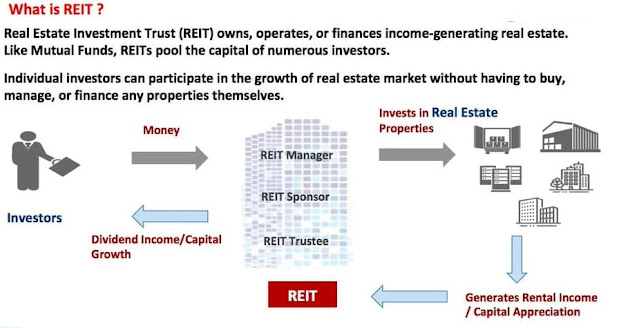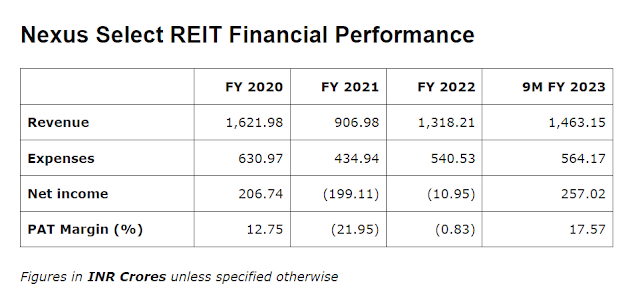EMERGENCY FUND IS THE PILLAR OF A STRONG FINANCIAL PLAN
We live in
an era where joint family is an endangered species and thus you are left to
fend for yourself even in an emergency financial situation.
In a
Contingency Situation, the options for you could vary from selling your prized
processions to selling your blue chip shares/Mutual funds to taking a Credit
Card loan or even borrowing from your friend or the next-door moneylender.
All these
could lead to potentially rock your Financial Plan. This is where an EMERGENCY
FUND comes into the picture. One of the
biggest lessons that COVID has given all of us is the importance of having an
EMERGENCY FUND
Emergency
Fund acts as a Shock Absorber of a Financial Plan. The absence of it can make a
Financial Plan turbulent. Once you have this covered…. then the mental peace
you have is unparalleled.
If you don’t
have an Emergency Fund, SET IT UP NOW!!!
WHAT ARE THESE EMERGENCIES????
Upgrading
from a Maruti 800 to a Mercedes Benz is NOT an Emergency!!!
Medical
contingencies, job loss, and salary cuts are some emergencies that you must be
prepared for.
A sudden
Medical Complication in the family fits in as the best example of an Emergency.
True, Health Insurance will be there and should cover the bill, but Mediclaim does
NOT cover everything and sometimes, during a medical emergency, not many will
have neither the patience or the time to go through the procedure of following
up with the health insurance companies.
Job losses
have become a common part of our daily life.
Losing your job without a notice period is another case of an emergency.
Even a
Sudden House Repair (due to Earthquake or a Huge Rainfall following Water
creeping into your home and damaging interiors) too comes under the category of Contingency.
So, at the
cost of sounding repetitive, let me reiterate, Any Unforeseen Expense which can
upset your Financial Plan is a fit case for linking to a Contingency Fund.
And even
replacing your SMARTPHONE (due to sudden breakdown/repair) is also an EMERGENCY
in this age!!
HOW TO SET UP AN EMERGENCY FUND:
To set up an
emergency fund, you need to create an Emergency BUDGET based on your living
expenses.
1. Start
with the MOST important expenses like Food, Medical costs, Rent, EMI, Groceries,
etc which are uncompromisable. And gradually scale up.
2. Multiply
these expenses by a minimum 3 times (for e months) so that you get an idea of HOW
much to keep.
3. Divide
this money into different SAFE, LIQUID baskets such that is most easily
accessible when needed.
4. Give your
Emergency Fund contribution the highest priority
5. Review and
adjust as necessary.
HOW MUCH SHOULD I KEEP IN THIS EMERGENCY FUND:
3 to 6 months of
EXPENSES (not income) is to be kept aside as an Emergency Fund.
Of course,
this will vary depending on personal circumstances, such as job stability,
income level, family size, and other factors that impact financial security.
Having a
stable secure job means 3 months of expenses is enough.
But if your
income is commission based or where the inflow is volatile, it makes
sense to keep a larger amount in the emergency fund.
However,
having a target range of emergency funds is a good starting point.
WHERE DO I KEEP MY ALLOCATION FOR THIS EMERGENCY FUND:
Emergency
funds should be kept in Low risk, liquid assets that are most easily accessible
whenever needed.
High-Yielding
Savings Account
Overnight &
Liquid Mutual Funds
Even Cash at home
(some part)
It seems
stupid to lock away 6 months of Expenses in that lowly Liquid fund when your
friend is minting money in Day Trading.
Some
investors do keep a portion of their emergency fund amount in
ARBITRAGE FUNDS
P2P FUNDS
INVOICE DISCOUNTING
All these
are good short-term options but not ideal for emergency funds as these are
liquid enough to come into the emergency fund option basket.
The primary
purpose of a Contingency Fund is the Preservation of Capital and returns should
be treated as Bonus, nothing else!
I would
recommend that you split your Contingency Fund into
30% in SB Account
30% in Flexi
Deposits
30% in
Liquid/Overnight Mutual Funds
10% in Arbitrage
Fund (yes, I know, I am creating a bit of
controversy here.......).
Why Arbitrage Fund?
Yes, it is
quite unlikely that you will be using your entire 6 months of Contingency fund
in one go.
And, even if
yes, the Contingency could be either 1 month away or even 10 years away (or if
you are very lucky), could never happen!
And emergencies come in all forms and there
are some kind of emergencies that allows you the luxury of arranging funds after
a few days.
But do
remember, having a Contingency Fund, is purely for a Contingency and if you are
earning anything out it, it should be treated as a Bonus only!
And, please,
for God's sake DO NOT CONSIDER YOUR CREDIT CARD AS YOUR CONTINGENCY FUND!!!
PLEASE NOTE:
Emergency
Fund also includes a RAINY-DAY fund!
Now...what
is this Rainy-Day fund?
The Rainy Day
fund is for expenses that occur annually (or bi-annually) but occurs at
unexpected times.
For example, Car Repair is an expense that can occur ANY TIME.
It’s not an
EMERGENCY expense but not an ignorable one.
For this
type of Expense, you can use a fund called RAINY DAY
Many
investors keep the Rainy-Day Expense Fund as a part of Emergency Fund itself
and it's perfectly all right to do so.
FINAL NOTE:
It's
important to keep emergency funds separate from other investments and savings,
as they serve different purposes and require different criteria for allocation
and management. By keeping emergency funds separate, we can avoid the
temptation to dip into them for non-emergency expenses or investments.
IF YOU ARE
STARTING FROM SCRATCH AND DO NOT HAVE AN EMERGENCY FUND... YOU CAN GRADUALLY
START BUILDING THE SAME.
NO NEED TO
RUSH THROUGH. TRANSFER A FIXED AMOUNT CONTINUOUSLY TILL THE EMERGENCY CORPUS
BECOMES ABOUT 3 MONTHS OF EXPENSES
EMERGENCY FUND ACTUALLY HELPS YOU ACHIEVE FINANCIAL FREEDOM:
Having a rainy-day
fund can provide peace of mind and financial security, as unexpected expenses
can often lead to financial stress and strain. By setting aside a separate pool
of money for these expenses, individuals can avoid having to dip into other
savings or investments and stay on track with their long-term financial goals.
All the Best for a Wealthy Life
Regards,
Srikanth
Matrubai
Qualified
Personal Finance Professional (QPFP)
AMFI
Registered Mutual Fund Distributor
Author of the Amazon Best Seller books
DON'T RETIRE RICH
&
WEALTH OF WISDOM
.
All the best,
Regards,
Srikanth Matrubai
https://t.me/joinchat/AAAAAELl4KUnaJzi-JJlDg/




















